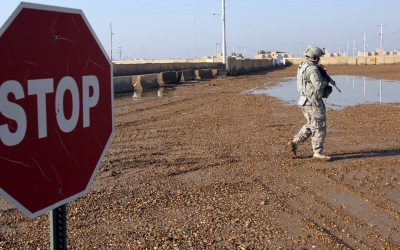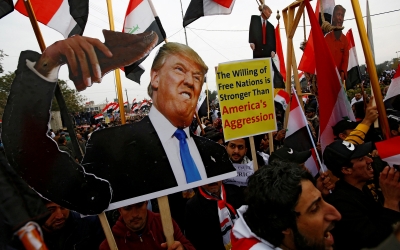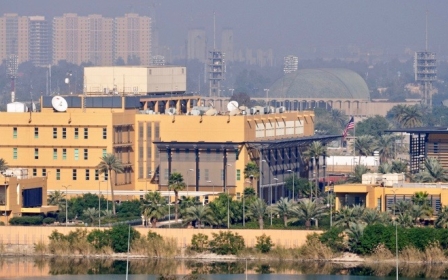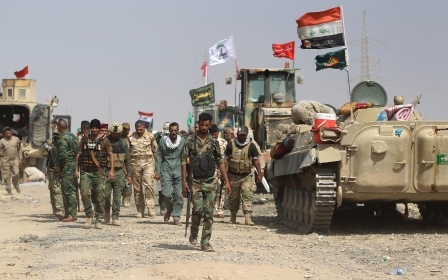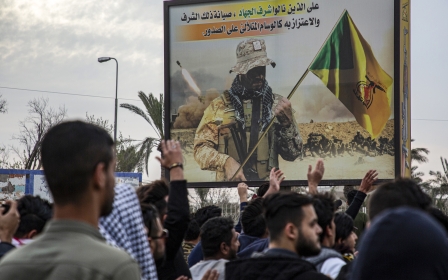Trump authorises US military to respond to deadly attack on Iraqi base
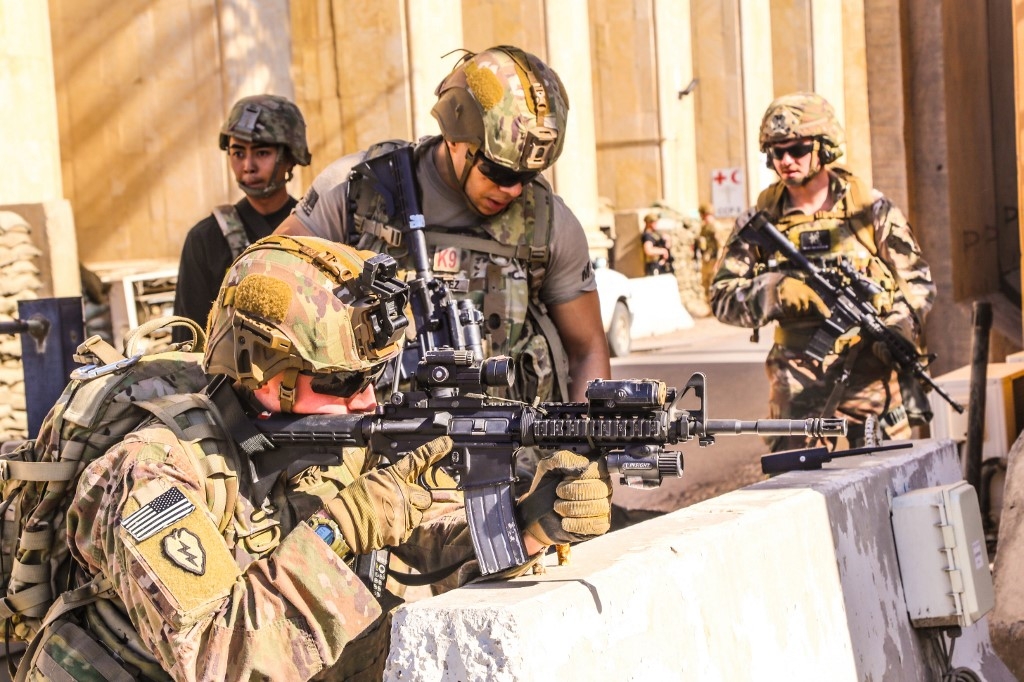
President Donald Trump authorised the US military to respond to a rocket attack that killed two American troops and a British service member at an Iraqi base for international coalition forces.
Defense Secretary Mark Esper and Army General Mark Milley, chairman of the Joint Chiefs of Staff, told reporters on Thursday that they have been authorised to respond to the deadly attack.
"I have spoken with the president. He's given me the authority to do what we need to do, consistent with his guidance," Esper told reporters.
'We have got to hold the perpetrators accountable. You don't get to shoot at our bases and kill and wound Americans and get away with it,'
- Defense Secretary Mark Esper
In addition to the three deaths, more than a dozen others were hurt in Wednesday's multiple-rocket attack, at least five of whom were "urgently" wounded, Milley said.
The two military leaders said they believe Iran-backed fighters carried out the strike, which hit Iraq's Camp Taji base north of Baghdad, but both men stopped short of identifying any specific group.
New MEE newsletter: Jerusalem Dispatch
Sign up to get the latest insights and analysis on Israel-Palestine, alongside Turkey Unpacked and other MEE newsletters
While no group has taken responsibility for the attack, the Iran-backed Kataib Hezbollah militia has in the past carried out some of the rocket strikes on US forces that have taken place amid heightened tensions in the region.
Esper and Milley warned that all options were on the table in terms of a US response. When asked if that could include strikes inside Iran, Esper hinted that strikes against those immediately responsible were the priority.
"I'm not going to take any option off the table right now, but we are focused on the group - groups - that we believe perpetrated this in Iraq, as the immediate [focus]," Esper said.
'We have got to hold the perpetrators accountable'
Trump told reporters at the White House it was not "fully determined it was Iran" and declined to say what the United States might do, Reuters reported.
"We'll see what the response is," Trump said.
The US has repeatedly and publicly warned that killing Americans overseas constitutes a red line that would trigger a US response.
"We have got to hold the perpetrators accountable. You don't get to shoot at our bases and kill and wound Americans and get away with it," Esper said on Thursday.
Washington blamed Kataib Hezbollah for a strike in December that killed a US contractor, leading to a cycle of tit-for-tat confrontations that culminated in January's US killing of top Iranian general Qassem Soleimani and a retaliatory Iranian missile attack that left more than 100 US troops with brain injuries.
In the latest attack, 14 US-led coalition personnel were wounded, including American, British, Polish and others. Private industry contractors were among the wounded. Milley said five of the wounded were categorized as "urgent," suggesting serious injuries that may require rapid medical evacuation.
A 'good indication' of the culprit
Earlier on Thursday, US Marine General Kenneth McKenzie, head of the military's Central Command, noted that only Iran-backed Kataib Hezbollah had been known to make such attacks in the past, Retuers reported.
"While we are still investigating the attack, I will note that the Iranian proxy group Kataib Hezbollah is the only group known to have previously conducted an indirect fire attack of this scale against US and coalition forces in Iraq," McKenzie told a US Senate hearing.
The US-led military coalition in Iraq said 18 Katyusha rockets struck Iraq's Taji military base.
Camp Taji has been used as a training base for a number of years. There are as many as 6,000 US troops in Iraq, training and advising Iraqi forces and conducting counter-terrorism missions.
A US official, speaking to Reuters on condition of anonymity, said a total of 30 of the rockets were fired at the military installation from nearby truck, but only 18 of them made contact with the base.
Milley said the truck yielded evidence about those responsible.
"We have good indication based on forensics of where [the attack] was fired from, who did the firing and so on and so forth," Milley said, adding that "we have pretty good confidence we know who did this."
Ongoing tensions
In a sign of concern that tensions between the US and Iran could be headed toward open conflict, the Democratic-led US House of Representatives passed legislation on Wednesday to limit President Donald Trump's ability to wage war against Iran.
The legislation was passed in the Senate last month, and now heads to Trump's desk, where it will likely be knocked down by a veto.
Trump has been engaged in a "maximum pressure" campaign against Iran, which has seen renewed sanctions and near-constant rhetoric against the country. The pressure campaign began after Trump pulled the US out of a multilateral nuclear deal reached during the Obama administration.
Tensions between Washington and Tehran have mostly played out on Iraqi soil in recent months.
The Iraqi parliament voted to expel all foreign soldiers from the country in the wake of the killing of Soleimani, a decision that can only be executed by the government.
But the outgoing government, which resigned in December in the face of mass protests, has yet to be replaced due to a lack of agreement in parliament, one of the most divided in Iraq's recent history.
Iran-backed paramilitary groups have regularly rocketed and shelled bases in Iraq that host US forces and the area around the US Embassy in Baghdad
Middle East Eye delivers independent and unrivalled coverage and analysis of the Middle East, North Africa and beyond. To learn more about republishing this content and the associated fees, please fill out this form. More about MEE can be found here.


